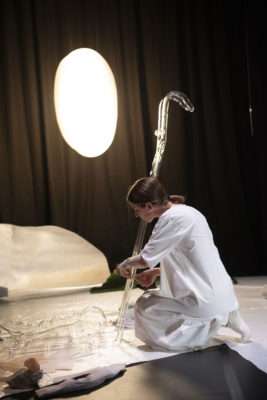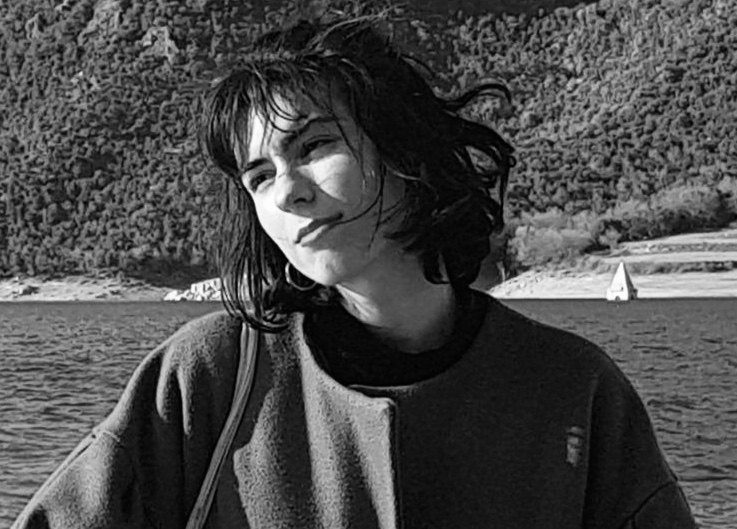Search
To search for an exact match, type the word or phrase you want in quotation marks.
A*DESK has been offering since 2002 contents about criticism and contemporary art. A*DESK has become consolidated thanks to all those who have believed in the project, all those who have followed us, debating, participating and collaborating. Many people have collaborated with A*DESK, and continue to do so. Their efforts, knowledge and belief in the project are what make it grow internationally. At A*DESK we have also generated work for over one hundred professionals in culture, from small collaborations with reviews and classes, to more prolonged and intense collaborations.
At A*DESK we believe in the need for free and universal access to culture and knowledge. We want to carry on being independent, remaining open to more ideas and opinions. If you believe in A*DESK, we need your backing to be able to continue. You can now participate in the project by supporting it. You can choose how much you want to contribute to the project.
You can decide how much you want to bring to the project.

I find it difficult to find an obvious link between the waves, the birds and the texts. However, there is something that involves all three elements. It is their dreamlike dimension, their capacity to make us imagine other worlds, places, spaces and times different from those around us. To begin this journey is a matter of two: we must also do our part. We must be willing to break with the meanings and the signifiers that we have built collectively. And understand that in reality the waves, the birds and the texts are merely an excuse to fly off in new directions. Each one projects his own and thus builds his own imaginary. This is the starting point for Julia Mariscal’s performance Ocells-Textos-Onades [Birds-Texts-Waves] at the Teatre Lliure.
Through the use of biological and artificial elements, the artist explores their different possibilities and their capacity to transform themselves. With each of them she maintains a unique relationship in which she observes them and then delicately manipulates them. She demonstrates their individual and also collective value: through spontaneous acts she establishes, without wanting to, a narrative that unites the meanings of all of them. She creates a dialogue between glass, milk, hair, salt, pigment or water. Also in an evident way: the milk stored inside a big glass container, the salt sliding through a glass funnel, the texture of the hair before and after submerging it in water… I think there is something very primitive in most of them, and that takes us to a space and time far away from the present. Something that is reinforced by the idea of ritual that envelops the whole performance: from the artist’s smooth movements as she moves around the stage to that peculiar way of caressing each of the elements that come into play. A fluid transition is created between the body and the objects; in it the hands, the legs and the feet become fundamental parts, they are the motor of each one of the movements. Like when you move smoothly around the stage on mirror skis.
In addition to the materials, there is another important element: light. It is interesting the play of shadows that the artist carries out through a small mirror located in the center of her chest. By means of a white cloth she explores its transparency and reflection, thus creating a circle that expands and contracts on different materials and spaces of the stage. Showing the potential of light through an object as simple as a mirror is, once again, a wink to a space-time past. Perhaps to some it refers to a Palaeolithic cave, where the contrast between light and darkness becomes very evident and where ingenuity is the only engine to build visual stories.
But in Ocells-Textos-Onades light also takes on another role: it enhances the materiality of objects. Julia Mariscal incorporates the heat from the theatre’s spotlights as another material in the performance. She has created hanging pieces of wax on which she directs the heat of a spotlight, thus achieving that when a certain temperature is reached the surface begins to sweat and melt.
The warmth of light is a key element in the dreamlike journey proposed by the artist. It helps us to enter a protected place, sheltered from any external factor and in which there are reminiscences of childhood. Mother’s milk is something intimate that connects two bodies, a substance that nourishes and allows the life of another being. Even the gesture of stirring the inside of a large pot can remind us of the love with which someone cooked a plate of food for us. We should not forget that the economy of care is there, in that free space that today is becoming more and more necessary and that asks us to conquer it again.
Ocells-Textos-Onades could be seen at the Teatre Lliure on Montjuïc on 25th and 26th January. Joan Cot Ros (sound space and musical intervention), Marc Lleixà (lighting) and Jordi Canudas (set design assistant) collaborated.
(Image of the performance. Photography: Anna Fábrega)

Writer and researcher. Graduated from Communication and Cultural Industries at the University of Barcelona, she is currently finishing the Master’s degree in Advanced Studies in Art History at the same university and working in her final project: the exploration between the public space, museum institution and identity through the relational art. She has worked in the department of exhibits at the Contemporary Art Museum of Barcelona (MACBA) and she is now part of the commission group On Meditation. She writes about art in Exit Express and has collaborated in Tentaciones of El País and PlayGround Mag.
"A desk is a dangerous place from which to watch the world" (John Le Carré)